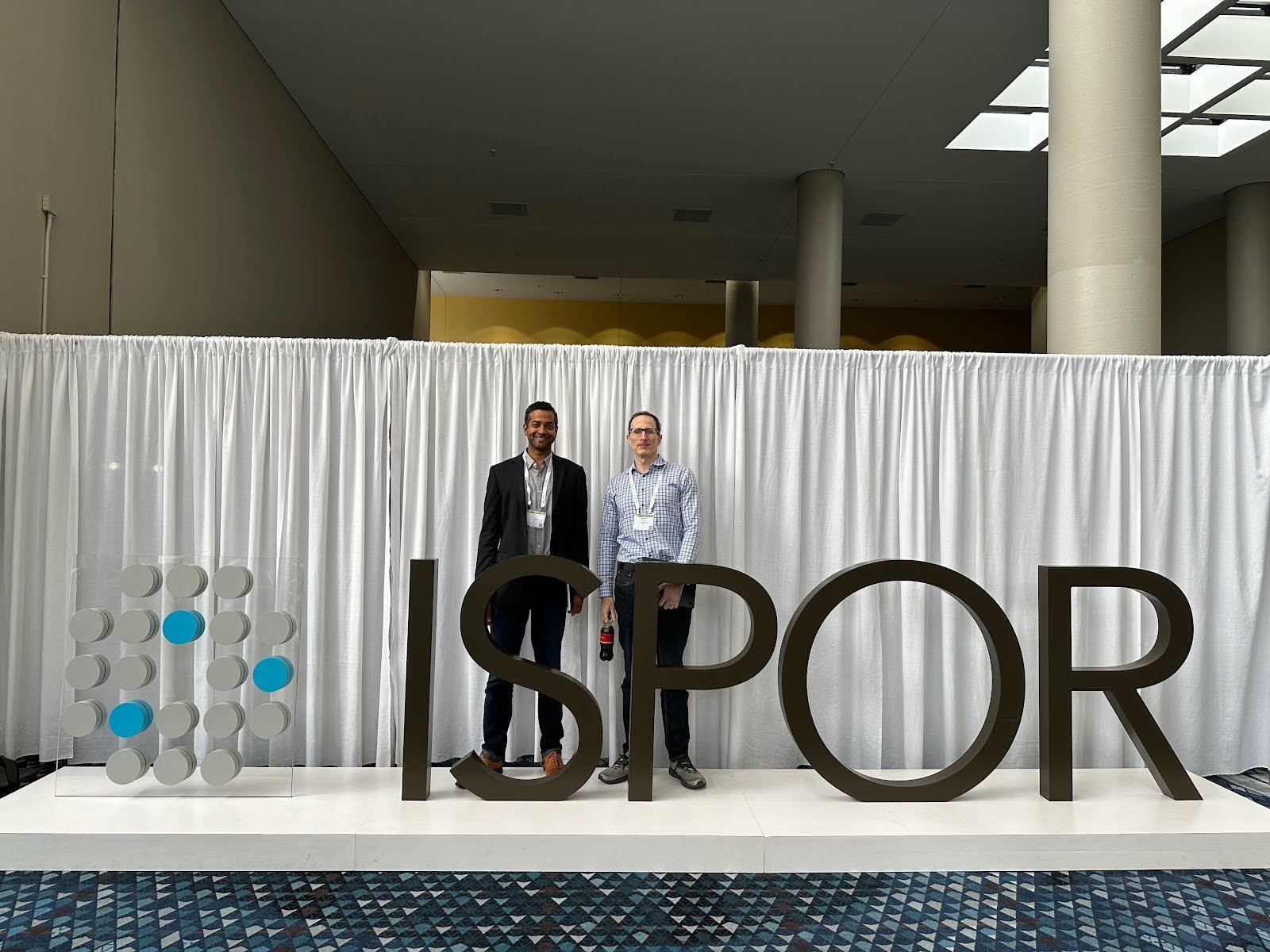Key Takeaways from ISPOR 2024: Insights for Healthcare Data Scientists and Analysts
Note: This blog post is not sponsored or affiliated with ISPOR or any specific vendors mentioned.
Mike Elashoff and Viraj Narayanan, CornerstoneAI’s Co-CEO’s attended the annual 2024 ISPOR conference in Atlanta on May 6-8th. Most of the time was occupied meeting with sponsors and strategic partners to discuss data cleaning challenges and opportunities. We summarized a few of our take-aways from the conversations.
1. Standardization into a Common Data Model: Pros and Cons
One recurring theme at ISPOR 2024 was the concept of standardization into a common data model. While some argue that it is essential for pharmaceutical companies to align their data in a standardized format to facilitate collaboration and analysis, others raised concerns about potential drawbacks. The pros of standardization include streamlined data sharing, improved comparability, and easier integration of different data sources. However, some experts questioned whether it truly aligns with the unique needs and priorities of each organization. While standardization certainly has its merits, it's essential to strike a balance and consider the specific requirements of organizations.
2. Ensuring Representative Datasets and Objective Measures
Another critical discussion point at ISPOR 2024 revolved around ensuring representative datasets for evaluating healthcare interventions and making informed decisions. Evaluating the efficacy of new treatments or interventions requires data that accurately represents the diverse patient population. Data scientists and analysts face the challenge of obtaining robust and unbiased datasets, preventing potential biases that can impact outcomes, as well as importantly, finding data that is fit-for-purpose to the research question of interest.
To address this challenge, experts emphasized the importance of objective measures and rigorous evaluation processes. Having clear and transparent criteria allows for fair comparison across data sources and ensures that decisions are driven by evidence rather than subjective judgment. The goal is to establish a reliable framework that enables data professionals to make well-informed go/no-go decisions based on solid evidence and unbiased evaluation metrics.
3. Study delays of up to 30% due to repeated, manual work of technical and scientific teams
Several sponsors described the cross-functional hand-offs and dependencies required to conduct a research project - often spanning strategy, data governance, study design teams, and programmers resulting in significantly delayed timelines of up to 30%. In a recent Komodo report, it was shown that 70% of life sciences teams invest six or more months in transforming data into a usable state to derive insights. A major pain point is manual work to standardize, harmonize, and apply quality checks to datasets, a requirement across many studies to ensure fidelity in the underlying scientific analysis and to bring together disparate sources in small patient populations. As data complexity grows, the underlying quality issues have become increasingly difficult to address as recently mentioned by McKinsey.
Conclusion
ISPOR 2024 provided valuable insights for healthcare researchers, data scientists, and clinical practitioners, pushing the boundaries of what is possible in the field. From standardization debates to the ethical considerations surrounding data analytics to the use of AI to increase productivity, the conference sparked important discussions and provided us an opportunity to deepen our understanding of sponsors' needs.
At Cornerstone we have built an intelligent system that automates data quality assessments, standardization, harmonization, and error detection, so technical and scientific teams can focus on higher value-add tasks. Please reach out to us at accounts@cornerstoneai.com if we can help!
About Cornerstone
Cornerstone AI is an AI-assistant purpose-built to clean Real World Data (RWD) in healthcare. Our proprietary models automatically identify issues in data in each dataset, enabling performance of data quality assessments, data standardization, data harmonization, and error detection much more robustly, faster, and in most instances , more cost effectively, than existing manual methods.
This article was generated with the assistance of Easypress.ai's content creation platform

